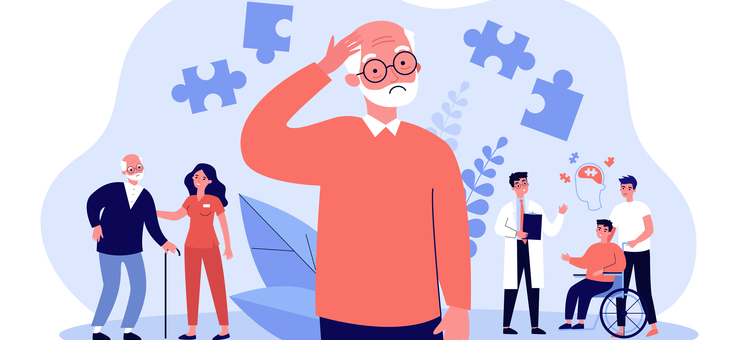The older we get the rarer those nights of deep, restorative sleep, but the evidence is overwhelming that good sleep is essential to good health.
As we age, we produce less of the hormone melatonin, which helps us sleep, and it is delivered earlier in the day, hence the urge for a nanna nap.
It is well documented that a lack of sleep can lead to accidents, weight gain, depression, heart disease, stroke, diabetes and if that’s not anxiety-inducing enough (anxiety being another side effect of poor sleep), dementia has now been added to that list.
A five-year study, published in the journal Aging, found that risk of dementia was double among participants who reported sleeping fewer than five hours a night compared with those who reported sleeping seven to eight hours a night.
The research, led by a team from Boston’s Brigham and Women’s Hospital, also found associations between sleep disturbance and sleep deficiency with an overall risk of death.
“Our findings illuminate a connection between sleep deficiency and risk of dementia and confirm the importance of efforts to help older individuals obtain sufficient sleep each night,” said lead author Dr Rebecca Robbins, of the Division of Sleep and Circadian Disorders.
The US National Sleep Foundation survey found that more than 50 per cent of over 65s reported at least one sleep difficulty “most of the time”.
The Harvard Gazette reported that Dr Robbins and her colleagues used data collected from older adults participating in the US National Health and Aging Trends Study (NHATS), a longitudinal study of Medicare beneficiaries aged 65 and older, that began in 2011.
A sample of 2610 participants answered sleep questionnaires in 2013 and `14. Researchers examined their answers about sleep disturbance and deficiency, including alertness, nap frequency, how long it took them to fall asleep, sleep quality (good/very good, fair, very poor/poor), duration and snoring.
They also collected information about patient outcomes such as dementia and death from any cause for up to five years after the survey.
Overall, they found a strong relationship between several sleep disturbance and deficiency variables and incident dementia over time – those who developed the disease over the five years.
Routinely taking 30 minutes or longer to fall asleep was associated with a 45 per cent greater risk for incident dementia. Routinely experiencing difficulty in maintaining alertness, napping, reporting poor sleep quality, and sleeping five or fewer hours a night was also associated with increased risk of death.
“This prospective study reveals that sleep deficiency at baseline, when the average age of participants was 76 years old, was associated with double the risk of incident dementia and all-cause mortality over the next four to five years,” said senior author Charles Czeisler.
“Our study demonstrates that very short sleep durations and poor-quality sleep in the elderly increase the risk of developing dementia and earlier death. There should be increased focus on obtaining healthy sleep in older adults,” said second author Stuart Quan.
The authors called for further study of the causal relationship between sleep and dementia and death.
For good sleep habits, the Sleep Health Foundation recommends:
- Going to bed at the same time and getting up at the same time. Aim for seven to eight hours’ sleep.
- Daily exercise and time outdoors to boost melatonin production.
- No screens, exercise, or big discussions 1-2 hours before bed.
- Limit caffeine, alcohol, cigarettes to earlier in the day.
- Create a dark, quiet, cool, comfortable bedroom to use only for sleep and intimacy.
- If you are not asleep within 20 to 30 minutes of going to bed, go to another darkened room and sit quietly. When you feel tired and sleepy again go back to bed. Rest is good – it does not have to be sleep.
- If stressed, set aside a ‘worry time’ during the evening to think about the day, make plans and develop possible solutions. Then don’t think about these things until the next day. If thoughts come in, consider them for a moment and then try to gently replace them with calm thoughts.
- If you need a nap, keep it to no more than 30 minutes, and no later than the afternoon.
Are you a good sleeper? Or is sleep becoming more elusive as you’ve aged? How do you deal with any sleep problems?
If you enjoy our content, don’t keep it to yourself. Share our free eNews with your friends and encourage them to sign up.
Related articles:
https://www.yourlifechoices.com.au/health/wellbeing/is-melatonin-or-magnesium-a-better-sleep-supplement
https://www.yourlifechoices.com.au/health/wellbeing/what-is-deep-sleep-and-how-can-you-get-more-of-it
https://www.yourlifechoices.com.au/health/how-to-tell-if-youre-oversleeping-and-what-to-do

